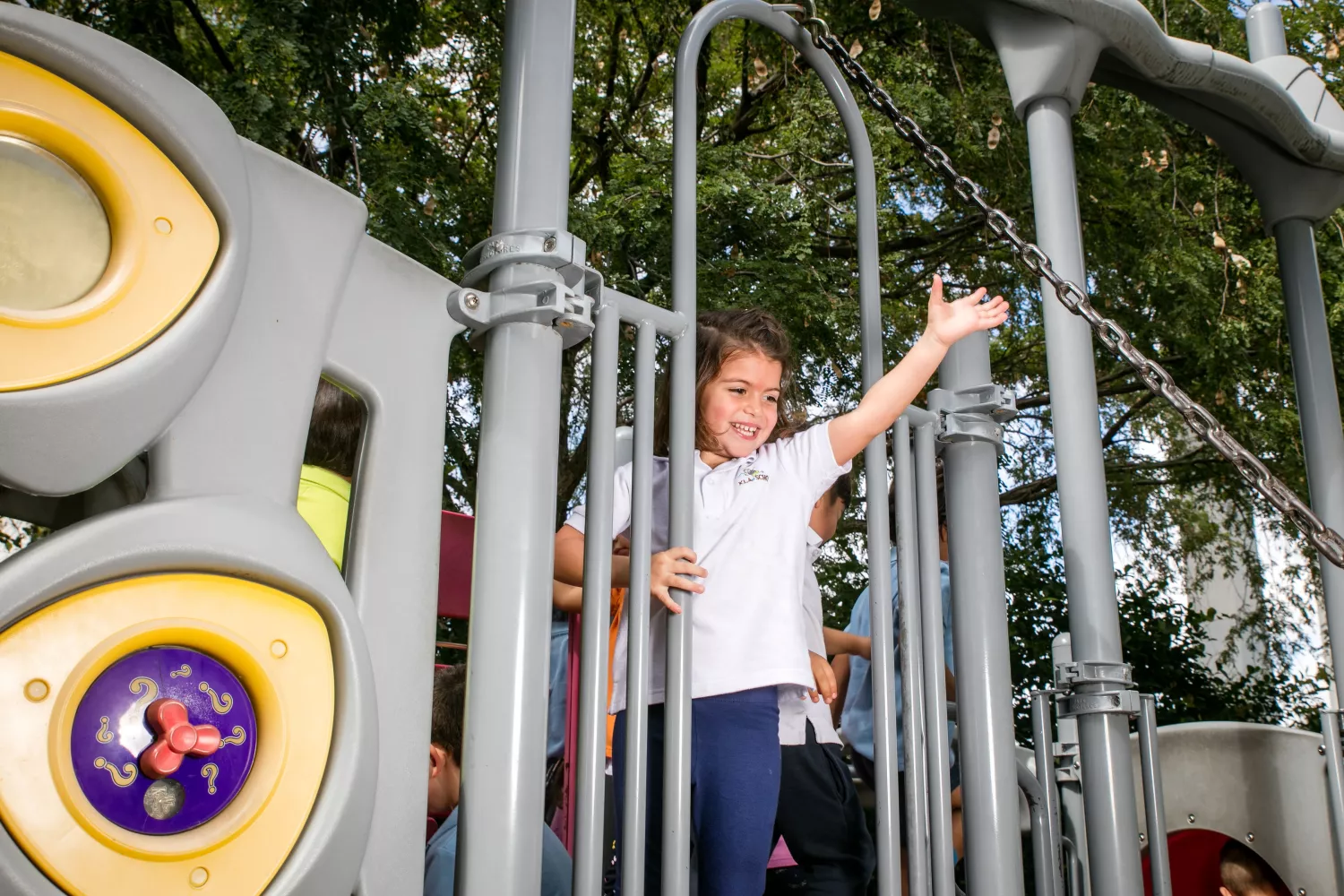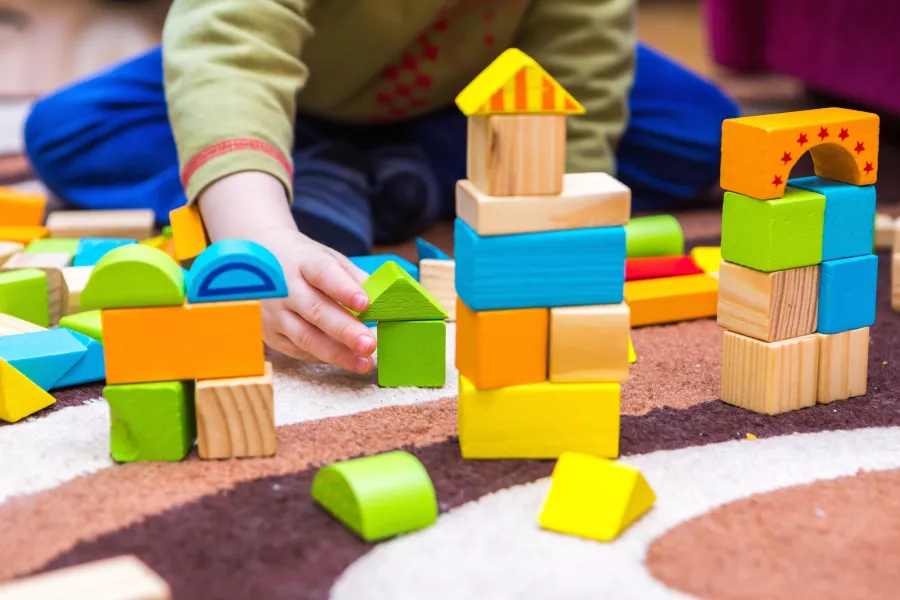Rainy Day? Try These Indoor Activities for Preschoolers
Topics: Family Fun
Age Range: Preschool
On days when the weather’s too poor to enjoy educational activities outdoors, you and your preschooler can still have fun indoors. Here are some suggestions for keeping your preschooler entertained while stuck inside the house.
Develop language and literacy skills with a good book
As we mentioned in an earlier post, reading with your preschooler develops literacy, creativity, problem-solving, and a lifelong love of learning. A rainy day is a perfect time to enjoy a few good books with your child. Encourage your child to interact with the books. Touching the books, turning the pages, and even playing with components of the books themselves will create a positive mental association with reading.
With rainy-day reading, take your time and delve into the book. You can extend the story and ask your child questions such as, “What colour is that car?” or “Why do you think the dog ran away?” Preschoolers are endlessly curious, so try not to put too much importance in the linear aspect of the story. Instead, let your child discover the joy of books.
Encourage creativity with make-believe
According to psychologist Sandra Russ, imaginative play in early childhood may be associated with increased creative performance in later years. There is no better time than a rainy day to let your preschooler’s imagination blossom. Some ideas for imagination-focused make-believe games include:
- Putting on a play or dance with costumes
- Setting up a mini-grocery store with household items
- Having a tea party, complete with stuffed animals as guests
- Building a city with blocks and other toys
- Being an animal – an elephant, a horse, even the family pet
Pretend play allows children to express their creativity and develop problem-solving skills in a safe, controlled environment.
Develop fine motor skills with crafts
Through hands-on crafting activities, your preschooler will develop his fine motor skills in a fun, age-appropriate way.
Fine motor skills such as hand-eye coordination can be developed with crafts that involve smaller, intricate movements, such as: stringing beads together to create a necklace; drawing shapes and patterns; and building a tower with blocks.
Develop gross motor skills with games
The gross motor skills that use the larger muscle groups of the body can be developed through a wide variety of indoor games. For example, dancing is an ideal way to help your child understand the concept of rhythm. You can encourage this development by singing songs that require a corresponding action, such as “I’m a Little Teapot” or “Itsy Bitsy Spider.”
You can also set up an indoor obstacle course using household items such as couch cushions, stools, and chairs. Helping your child to crawl under, climb over, balance on, and pass through these obstacles is a fun way for her to develop her gross motor skills.
Indoor scavenger hunt
No matter your child’s age, there are many possibilities for fun and interesting indoor scavenger hunts. For younger children who can’t yet read, you can create a visual checklist of clues, drawing what they’d have to look for.
Some ideas for indoor scavenger hunts include:
- Finding a certain number of items of the same color
- Hiding stuffed animals around the house and pretending they’ve escaped the zoo
- Numbers-related scavenger hunt – either find as many instances of one number, or search from a list of numbers
- Older children can take photos of items on their list instead of using a checklist
- Using riddles as clues. Here are some household item riddles for kids.
Movie night (or afternoon)
A day indoors is an ideal opportunity for your child to indulge in one of their favorite movies, or several movies with a similar theme. You can make it into a special occasion by piling pillows and blankets on the couch, and having some of their favorite snacks and drinks within reach. If you’re working from home, you may need to be nearby to supervise and ensure everyone is safe and happy.
At-home science project
Preschool or daycare is a great place for your child to learn the fundamentals of science, but you can create fun experiments for your child at home too.
For example, you can help your child learn about buoyancy, volume, and mass with household objects. Fill a large bowl with a bit of water, and mark the water level on the container. Then, get several small objects such as coins and toy cars. Help your child place the objects into the bowl. As the water level rises, make observations with your child. Are the coins heavier than the toy cars? How many of each object does it take to make the water overflow? Does the size of the item make the water level rise faster?
Get active
Being stuck indoors doesn’t mean your child can’t enjoy some physical activity. Here are some ways your child can stay active indoors and get their energy out:
- Dance, or “freeze dance” – freezing in place when the music is stopped by you
Play volleyball with a balloon in a reasonably open area - Set up an indoor obstacle course or maze with chairs, pillows, and cardboard boxes, and help your child to go through it with support if needed
- In a hallway or other open area, have your child practice throwing a beanbag or rolled-up socks as far as they can into a basket. Move the basket farther away after each successful throw
- In the same area, mark out “nets” with masking tape and play soccer with a large rubber ball
- Play pretend as animals and race – hop like a bunny or walk like a crab
- Hula hoop or jump rope, including music for added interest
- Have a pillow fight
When playing games like these indoors, ensure your child is supervised, and clear away any hazardous obstacles such as end tables or valuables that could get knocked over.
Poor weather doesn’t have to mean that your preschooler misses out on fun and educational activities. Together, you and your child can enjoy a rainy day indoors while also developing his literacy, creativity, and fine and gross motor skills.

